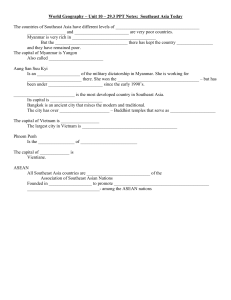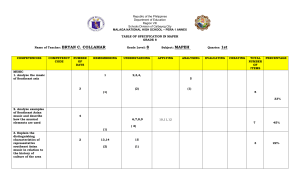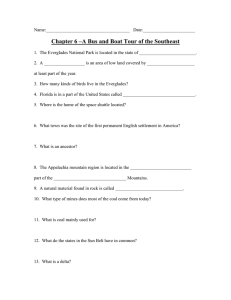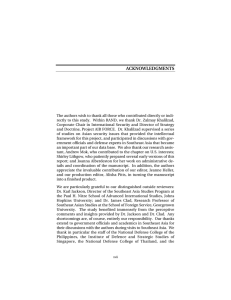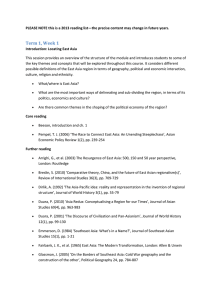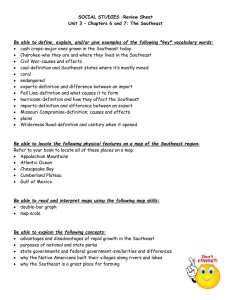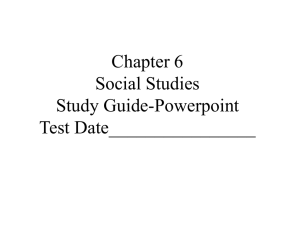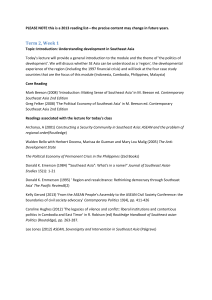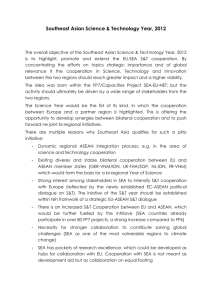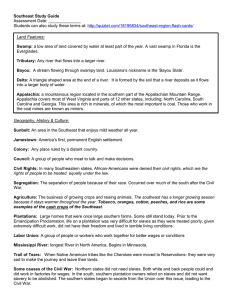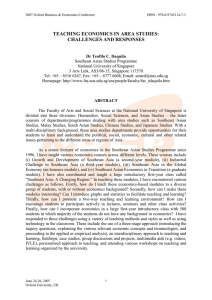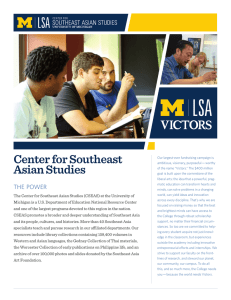PREFACE
advertisement
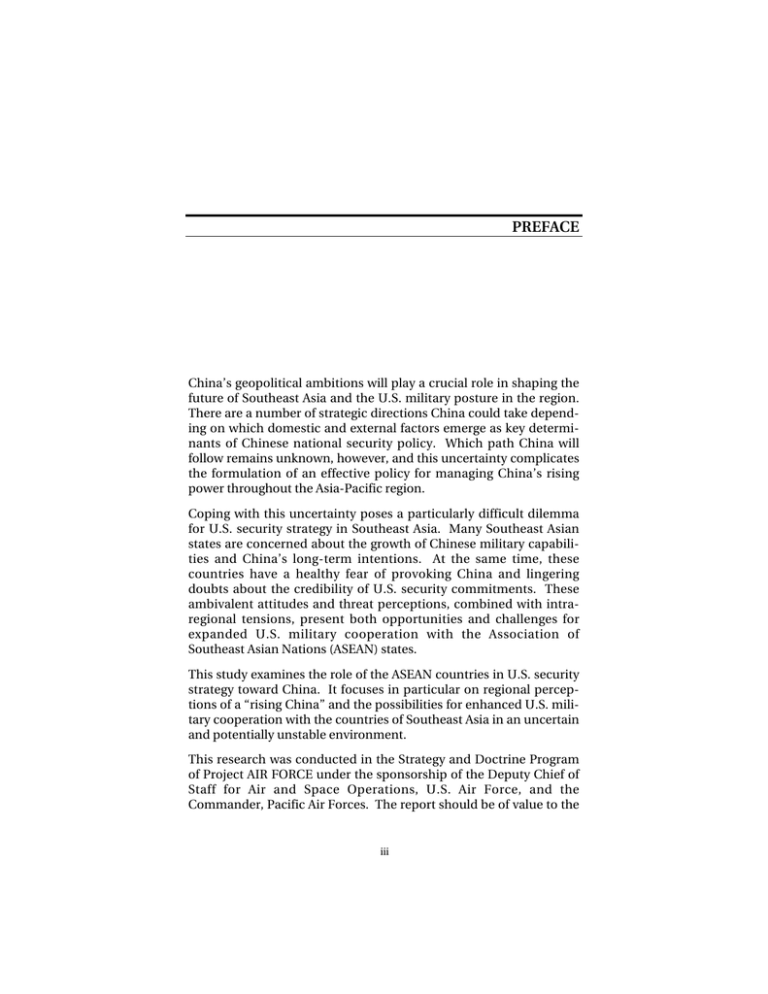
PREFACE China’s geopolitical ambitions will play a crucial role in shaping the future of Southeast Asia and the U.S. military posture in the region. There are a number of strategic directions China could take depending on which domestic and external factors emerge as key determinants of Chinese national security policy. Which path China will follow remains unknown, however, and this uncertainty complicates the formulation of an effective policy for managing China’s rising power throughout the Asia-Pacific region. Coping with this uncertainty poses a particularly difficult dilemma for U.S. security strategy in Southeast Asia. Many Southeast Asian states are concerned about the growth of Chinese military capabilities and China’s long-term intentions. At the same time, these countries have a healthy fear of provoking China and lingering doubts about the credibility of U.S. security commitments. These ambivalent attitudes and threat perceptions, combined with intraregional tensions, present both opportunities and challenges for expanded U.S. military cooperation with the Association of Southeast Asian Nations (ASEAN) states. This study examines the role of the ASEAN countries in U.S. security strategy toward China. It focuses in particular on regional perceptions of a “rising China” and the possibilities for enhanced U.S. military cooperation with the countries of Southeast Asia in an uncertain and potentially unstable environment. This research was conducted in the Strategy and Doctrine Program of Project AIR FORCE under the sponsorship of the Deputy Chief of Staff for Air and Space Operations, U.S. Air Force, and the Commander, Pacific Air Forces. The report should be of value to the iii iv The Role of Southeast Asia in U.S. Strategy Toward China national security community and to those in the general public who are interested in United States-Chinese relations and the future of the Asia-Pacific region. Comments are welcome and should be sent to the authors or the project leader, Dr. Zalmay Khalilzad. PROJECT AIR FORCE Project AIR FORCE, a division of RAND, is the United States Air Force’s Federally Funded Research and Development Center (FFRDC) for studies and analyses. It provides the Air Force with independent analyses of policy alternatives affecting the development, employment, combat readiness, and support of current and future aerospace forces. Research is performed in four programs: Aerospace Force Development; Manpower, Personnel, and Training; Resource Management; and Strategy and Doctrine.
